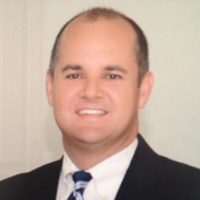 Severn White Collar Crime Lawyers, North Carolina
Severn White Collar Crime Lawyers, North Carolina
Sponsored Law Firm
-
 x
x

Click For More Info:
-
The Law Offices of Richard L. Cooper, P.A.
848 Brickell Avenue Suite 800 Miami, FL 33131» view mapDWI/DUI, Drug Trafficking, Felony Nationally Ranked Top 40 Under 40
With Richard L. Cooper you can expect a trusted confidant who will work diligently to fully understand your case and determine a road map to help you regain control of your life.
800-756-2781
Not enough matches for Severn White Collar Crime lawyer.
Below are all Severn Criminal lawyers.
Sponsored Lawyers
1-4 of 4 matches
Criminal, Accident & Injury, Workers' Compensation
I fight for those in my community and helping my clients is my highest priority. I will do whatever I can to ensure my clients receive the best outcome and I will look out for your interests as if I were in your shoes. I will give your case the time and attention it deserves. I have appointments available right away, you will not have to wait weeks to have your concerns addressed. In 1998, I established my practice in the heart of Halifax County, North Carolina, right on US Highway 301 across from the Halifax County courthouse. I had always worked tirelessly to help those in my community, but I knew as an attorney I could take that drive a step further. I could now fight for the rights and freedom of my clients; and today I have more than eighteen years of experience in doing so. I welcome the chance to put my knowledge and tenacity to work for you. When your freedom, health or reputation is on the line, I will take your fight on as my own.
(more)



 Richard L. Cooper Miami, FL
Richard L. Cooper Miami, FL AboutMiami Attorney at Law
AboutMiami Attorney at Law ServicesCriminal Defense
ServicesCriminal Defense


